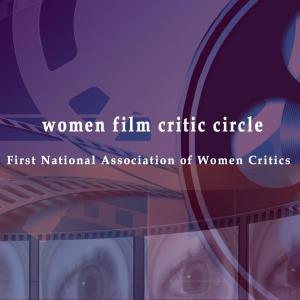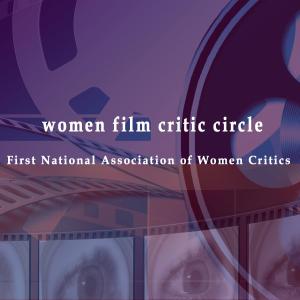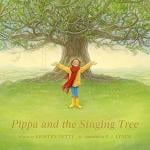
It was an honor for me to interview Lou Gossett, Jr. about receiving the CIMA Lifetime Achievement Award:
Sr. Rose: What are your thoughts about receiving the CIMA lifetime achievement award?
Lou Gossett, Jr: This is a very gratifying moment for me and I am humbled by this award. You never know when what you do in the arts means something to people and you never really know if you’ve been received well. So it is humbling and I am grateful
SR: You are known for your philanthropic activities including the work of the Eracism Foundation (www.EracismFoundation.org). How does this project influence your work in Hollywood, in how various races, cultures and religions are represented on screen?
LG: Other races and cultures have been underrepresented in the past because of history, the way things were. But there is a strong spiritual shift happening in this industry because of technology and because everyone knows what everyone else is doing. Now everyone can see, can know. I think this spiritual shift is shown in the election of our president. People who never voted before, voted. There’s something happening.
SR: How does this spiritual shift make a difference in everyday life?
LG: There are beautiful words in the Bible and in our pledges and the Declaration of Independence. But there is a gap between our prayers, pledges, and life; there are prayers in the Bible, and guidelines in all these things, stronger than our own ways of thinking and acting. All this “teaching” has been written for us, with all our flaws and gifts, for our improvement, to change the world. And each generation can grow from these teachings. But it is our duty to improve the condition of the planet and our lives, to act the way we believe.
SR: So you are talking about parenting?
LG: Yes, but this is all our responsibility. Mentoring and loving of our children, not with negatives but with positives. We hand on our history knowing that we can be different now.
When children mature they can take responsibility. And that gap between teaching and acting on that belief in God and humanity, is bridged by reflection, prayer and by making a personal inventory of our lives on a daily basis, and growing in a relationship with God. To rely on someone stronger than ourselves, to know our roots. Like when Kunta Kinte (Roots) was born and lifted up they said: “Behold, the only thing greater than yourself: God.”
In whatever way you believe in God, this Higher Power, this is a path to God. I believe the gift of acting is a gift from God, my oath to God, and I want to make sure on a daily basis that it is honed and deeply spiritual…. I want to believe that the audience believes that my acting comes from this special place.
Race relations are only part of life. Creating a spiritual being at a younger age, to be responsible for our children, beginning with parents and including the whole community, we need to find ways to show children how to resolve conflicts. That it becomes automatic to do things well, to live well.
I think God asks us to promise to replenish the planet and to pay 100% attention to our young, so that they will develop character and a good conscience. Our neighborhoods have deteriorated because of racism. But the people who have survived, who have been persecuted, have to come up with a spiritual and moral response to make neighborhoods safe and a good place to invest in. I believe the positive is stronger than the negative.
You know, on Inauguration night, I was watching the returns with Cicely Tyson (The autobiography of Miss Jane Pittman). When Obama was announced as the winner, I had to catch her. She collapsed. And we realized that all the atrocities, all the things that had happened to our people were over.
SR: You said before that you think there is a change in the entertainment industry.
LG: More than before, I believe there is good news in the movies, that we in this industry have received an invitation to move to the next level, telling stories that matter.
SR: You have eight projects, according to the IMDB, in various stages of production, out of a lifetime of 158 films. Of your body of work, what role or film was the most important for you?
LG: Enemy Mine (1985), directed by Wolfgang Petersen, is the most meaningful film for me. It’s a science fiction film where I play Jeriba, a “Drac” or reptilian humanoid, on another planet that is 80% aquatic. A human named Willis Davidge, played by Dennis Quaid, crashes on my planet. In the film my philosophy was so pure that it prevailed over Davidge’s values and beliefs. It is a very poignant story about enemies needing each other so they can both survive. And of course, Roots (1977), remains one of my favorite roles.
My latest film just premiered at the Palm Springs Film Festival in January: The Least among You. It is the true story about a young man who was unwittingly involved in the Watts riots, was jailed, and went on to become the first African-American to break the color barrier at an all-white seminary. It also starts William Devane and Lauren Holly. This is a story that is very close to my heart.
SR: How do you keep your “core” your best self, in this business?
LG: It’s tough, but it is getting easier. You need a thick skin to withstand rejection, a lot of rejection, and a thin skin to stay sensitive. It’s spiritual and moral work being in this industry.
SR: When you get to the pearly gates, what do you think the Lord will say to you?
LG: (Laughing) I would hope that he will let me in, for the first thing. And that’s enough. I think I am trying to do what I was put on this planet to do, and so when I get to the pearly gates, that’s it! That’s enough! What a sigh of relief that is going to be.













